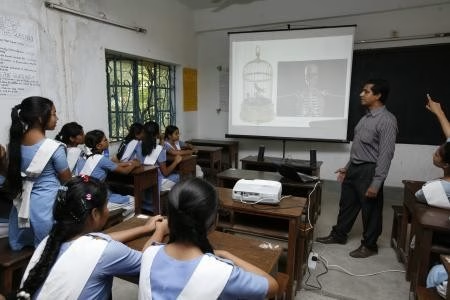Dr. Md. Neyamul Islam
The 21st century is defined by the rapid growth of technology, innovation, and artificial intelligence. This new era demands a fundamental shift in education, moving away from simple knowledge transfer toward cultivating thoughtful, creative, and adaptable individuals. The goal is not to produce job-seekers, but to nurture a generation of innovators, problem-solvers, and leaders who can create new opportunities.
Unfortunately, Bangladesh’s current education system is still largely dependent on a rote-based, test-centric, and certificate-driven model. While students may achieve good grades, they often lack crucial skills like critical thinking, intellectual curiosity, and leadership. This raises a critical question: is our system truly preparing future leaders, or is it merely producing a new generation of clerks?
KEY CHALLENGES IN THE CURRENT SYSTEM
Being over-reliant on rote memorisation educational system is the prime weakness of Bangladesh’s educational system. Students are only taught to memorise their notes and books rather than answering the question by analysing and thinking creatively. This results in the hindering of the development of a students’ intellect and intelligence. In turn, learning reality is nothing more than an exam preparation.
Another major problem is the gap between education and real employment. Even though many students graduate annually, employers are finding it hard to find employees as there is a shortage of skilled employees especially in the IT, health, agricultural, and construction sectors. This is due to the negative social attitude towards technical and vocational education which deters many students from skill based alternative pathways. For this, students remain passive in the classrooms and lack interest in learning new things.
LESSONS FROM GLOBAL MODELS
Developing countries, on the other hand, presented several educational policies and models for us. Finland, for instance, project-based learning has shown emphasis in the curiosity and joyful learning of students. The dual vocational training model found in Germany combines education with practical and industrial experience. Meister schools in South Korea promote industrial-related technical skills. Singapore include STEM and computational thinking education for the primary level. In Australia and Canada, the STEAM education emphasises soft skills, communication, and teamwork.
A PATH FORWARD FOR BANGLADESH
To modernise the education system in Bangladesh, an integrated strategy is highly in need. The government should modernise the curriculum so that STEM, AI (artificial intelligence), digital literacy, and design thinking are included. Mainstreaming of technical and vocational education requires increased budget, infrastructure development and partnership with industry. Modern, interactive and student-centred methods should be introduced by investing in the training of teachers. Assessment methods should also be project-based, problem-solving and research-based rather than memorisation.
Political parties should partake responsibility for the development of education. There should be the development of a long-term plan for human resource and this should be developed beyond short-term campaigns. They (political parties) should build national unity and ensure consistent educational reforms.
Educational investment should not be seen as an expense, rather as a part of building the nation’s future. It is mandatory to have a clear and implementable education policy in the election manifesto.
The real value of education should also be understood by parents. Education should not only limit to the demands of certificates or grades rather it should emphasise skill development, character, and self-reliance. Creative work, questioning, and seeking extra-academic knowledge should be encouraged to the children.
Teachers’ role is important as well as it should enhance students’ thinking and creativity and encourage questioning, analysing, and problem solving. Application of creative curriculum in the classroom will make learning relevant and meaningful. On the other hand, teachers should improve their skills through regular training. Students should take self-responsibility on developing the habit of understanding, question, and analysing apart from excelling academically. They should also acquire soft and digital skills. We should find new solutions to these social problems by developing an entrepreneurial mindset.
Finally, citizens have a crucial role to play in the educational development of the nation. As a society, we should take education as a key driver towards progress.
In conclusion, the educational system of Bangladesh should not only prepare not only qualified people but also creative, innovative, and leadership skilled people to face the challenges of the 21st century. Education should be developed as a tool for life preparation, personal and social development.


